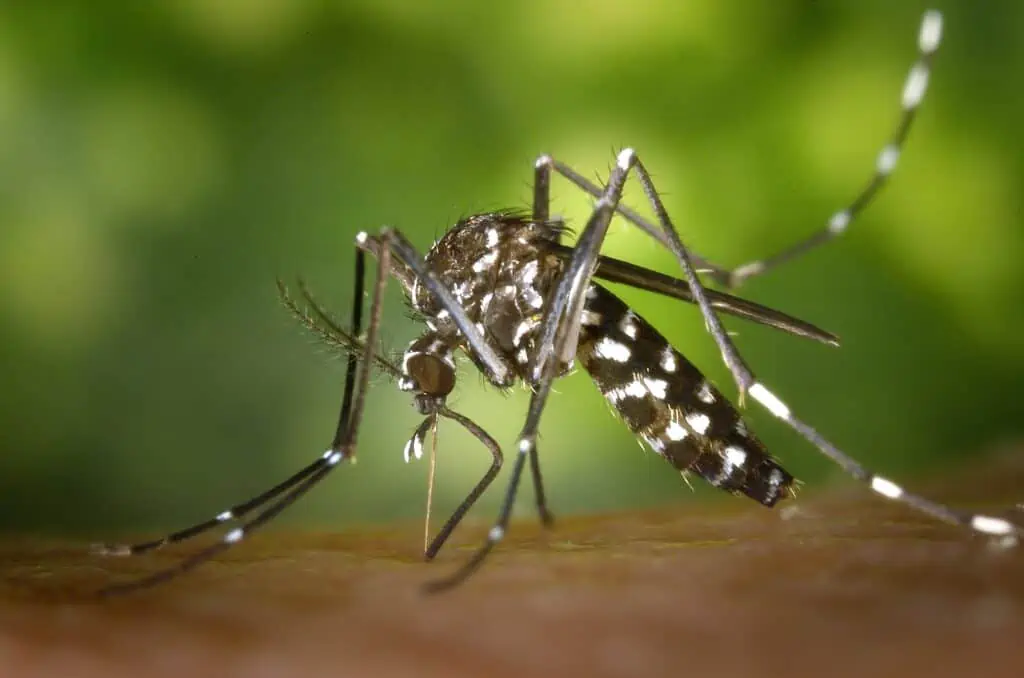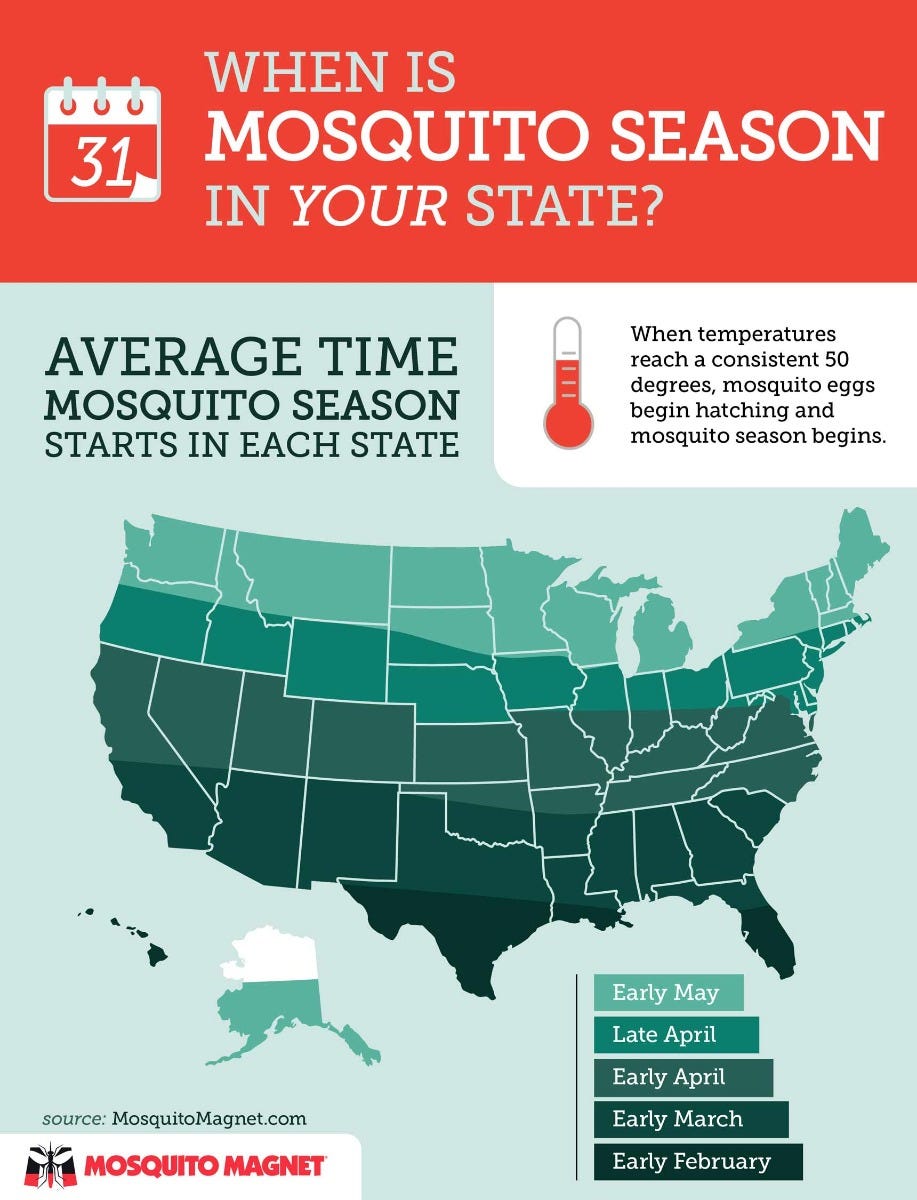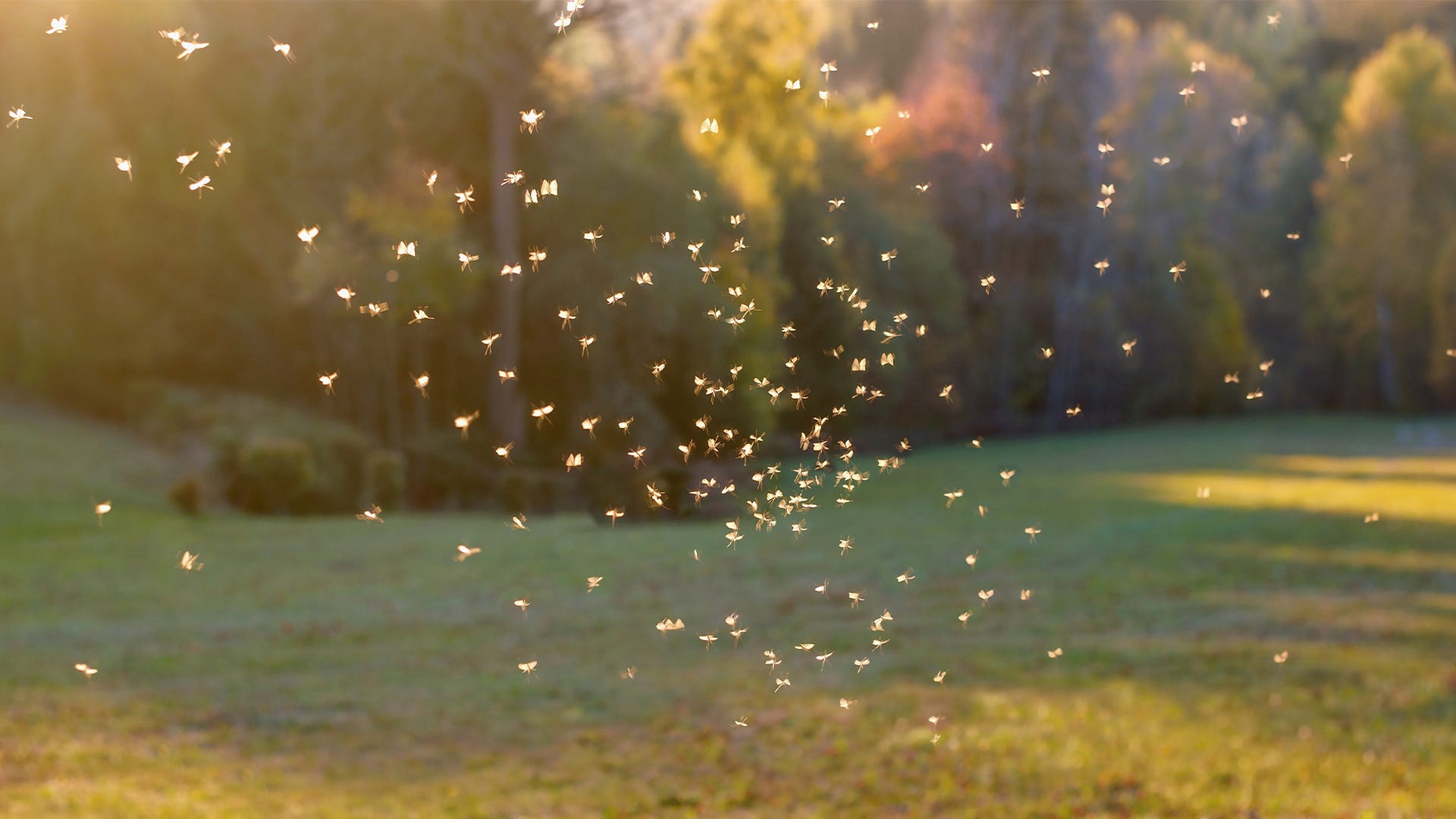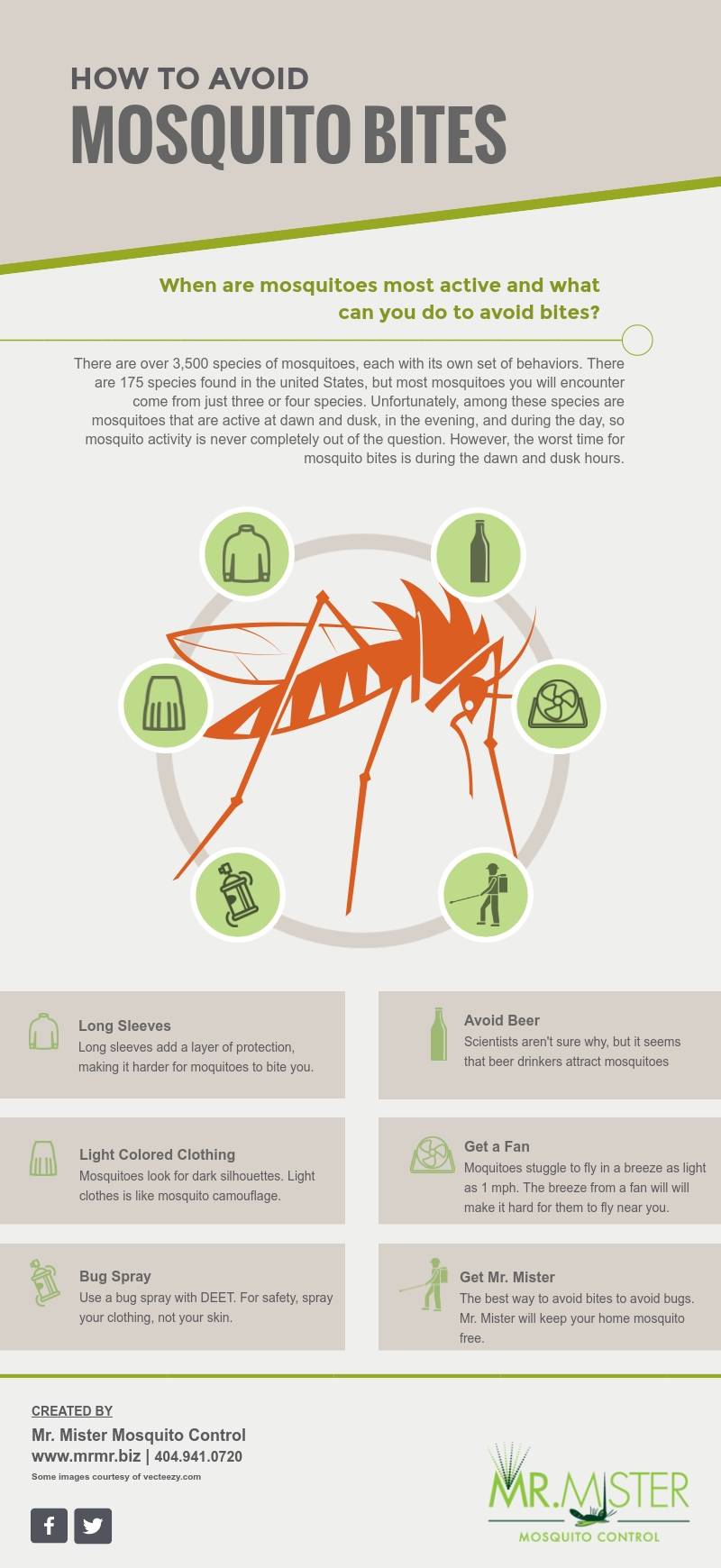Mosquitoes typically go away at night once they have eaten their fill and go into hiding. As dusk arrives, mosquitoes become more active due to hunger, emerging from hiding to feed before resting again at dawn.
Mosquitoes are most active around sunrise and sunset, avoiding the midday sun to prevent dehydration. They tend to remain active throughout the night, seeking shelter during late morning to late afternoon. Natural scents like citronella and lavender can help repel mosquitoes, while planting these scents in your yard can deter them from coming out.
Understanding the behavior of mosquitoes can help you take preventative measures to avoid their bites and enjoy your time outdoors.

Credit: safepropest.com
Mosquito Activity Patterns
Mosquitoes are typically most active around dusk and dawn when they are hungry for a blood meal. During the night, they will rest and hide until the sun rises again. Mosquitoes tend to avoid direct sunlight and high midday temperatures, so they are least active during the middle of the day.
Understanding mosquito activity patterns can help you plan your outdoor activities more effectively and take necessary precautions to protect yourself from these pesky insects. Mosquitoes, known for their irritating bites and ability to transmit diseases, exhibit specific behavior patterns throughout the day and night. In this article, we will delve into two key aspects of mosquito activity: their peak hours at dusk and dawn and their nighttime behaviors when they retreat.
Dusk And Dawn: Peak Mosquito Hours
When it comes to mosquito activity, dusk and dawn are the times when these tiny bloodsuckers are most active. Mosquitoes are crepuscular creatures, which means they are more active during twilight hours. At dusk, mosquitoes are typically very hungry as they have had limited access to creatures to bite throughout the day. This hunger drives them to come out of hiding in a flurry of activity, searching for their next meal. It’s during this time that you are more likely to encounter mosquitoes buzzing around and looking for a target.
As the night progresses and mosquitoes have had their fill, they will retreat and seek shelter to rest before dawn. This retreat is partly due to their need to conserve energy and avoid predation. So, if you’re planning outdoor activities, it’s best to schedule them outside of these peak mosquito hours to minimize your chances of getting bitten.
Nighttime Behaviors: When They Retreat
While mosquitoes are most active during dusk and dawn, they do exhibit specific behaviors during the nighttime hours. Mosquitoes tend to be less active during the middle of the night, opting for periods of rest and respite. They will seek out sheltered areas, such as dense vegetation, dark corners, or even inside homes, to escape the cooler temperatures and potential predators.
However, it’s essential to note that not all mosquitoes follow the same pattern. Some species, like the Asian tiger mosquito, prefer to rest during the day and come out to feed at night when temperatures are cooler and the risk of dehydration from direct sunlight is reduced. So, even during the night, you may still encounter mosquitoes depending on the species prevalent in your area.
To create a mosquito-free environment, it’s crucial to take preventive measures such as using mosquito repellents, wearing protective clothing, and eliminating standing water around your home. By understanding mosquito activity patterns and being aware of their peak hours and nighttime behaviors, you can better protect yourself and enjoy your outdoor experiences without the nuisance and potential health risks associated with these buzzing pests.

Credit: www.mosquitomagnet.com
Mosquito Habitats
Mosquitoes are adept at finding hiding spots during the day and night, making them challenging to avoid. Understanding their preferred habitats can help in minimizing encounters and bites. Here’s a closer look at where mosquitoes go during different times of the day.
Daytime Hideouts: Avoiding Sunlight
Mosquitoes seek shelter during the day to avoid direct sunlight. They often hide in shaded areas such as dense vegetation, under decks, and in areas with high moisture levels. Additionally, they may find refuge in garages, sheds, and other dark, secluded places. These hiding spots provide them with the darkness and humidity they need to stay cool and avoid dehydration from the sun.
Nighttime Nooks: Where They Linger
At night, mosquitoes tend to linger in areas with standing water, such as ponds, pools, and marshes, as it provides an ideal breeding ground. They are also active in gardens and wooded areas, where they feed on hosts and rest in the foliage. Moreover, mosquitoes are known to rest in cool, damp places such as under porches and inside homes where they can find blood meals and shelter from the elements.
Temperature And Mosquito Activity
Mosquito activity is closely linked to temperature variations. Understanding how temperature affects mosquito behavior can help in managing their presence effectively.
The Cold Threshold: When Bites Decrease
As temperatures drop below 50°F (10°C), mosquito activity significantly decreases. The cold threshold signals a reduction in mosquito bites, providing relief from these pesky insects.
Heat And Humidity: Mosquito Comfort Zones
Mosquitoes thrive in warm and humid conditions, with temperatures above 80°F (27°C) being ideal for their activity. High humidity levels also create favorable environments for mosquitoes to breed and bite.
Mosquito Defense Mechanisms
Mosquitoes are pesky insects that can disrupt our peaceful nights. Understanding their defense mechanisms can help us better protect ourselves from their bites. In this section, we will explore natural repellents that mosquitoes dislike and effective protection strategies to safeguard our nights.
Natural Repellents: Plants They Dislike
Mosquitoes have certain scents that they find repulsive. By incorporating plants with these scents into our surroundings, we can naturally repel them. Here are some plants that mosquitoes dislike:
- Citronella: This plant emits a strong scent that masks the smells that attract mosquitoes.
- Peppermint: The strong aroma of peppermint is known to deter mosquitoes.
- Lavender: Mosquitoes are not fond of the fragrance of lavender, making it a great addition to your garden.
- Lemongrass: The citrusy scent of lemongrass acts as a natural mosquito repellent.
By incorporating these plants into your landscaping, you can create a mosquito-free zone around your home.
Protection Strategies: Safeguarding Your Nights
While natural repellents can help keep mosquitoes at bay, it is also important to implement effective protection strategies. Here are some ways to safeguard your nights:
- Remove standing water: Mosquitoes breed in stagnant water, so eliminating any potential breeding sites around your property can significantly reduce their population.
- Use mosquito nets: When sleeping outdoors or in areas with high mosquito activity, using mosquito nets over beds can provide an extra layer of protection.
- Wear protective clothing: Covering exposed skin with long sleeves, long pants, and socks can minimize the areas mosquitoes can bite.
- Apply mosquito repellent: Using insect repellents containing DEET or other recommended ingredients can provide effective protection against mosquito bites.
- Install screens: Installing screens on windows and doors can prevent mosquitoes from entering your home.
By implementing these protection strategies, you can create a mosquito-free environment and enjoy peaceful nights without the annoyance of mosquito bites.
Lifecycle And Daily Routines
Mosquitoes tend to be most active during dawn and dusk, but they can also remain active throughout the night. Once dusk arrives, they are more likely to come out in search of a blood meal, but they will eventually retreat to rest before dawn.
It’s important to take precautions to avoid mosquito bites, especially during peak activity times.
Feeding Frenzies: The Quest For Blood
Mosquitoes are notorious for their quest for blood, which is necessary for their reproductive cycle. Female mosquitoes require blood to produce eggs, while male mosquitoes feed only on nectar. Mosquitoes are most active during the night, particularly at dawn and dusk. This is when they are most likely to be on the lookout for their next meal.Rest Periods: Understanding Mosquito Downtime
While mosquitoes may seem like they are constantly on the move, they do require rest periods to recharge. Mosquitoes tend to rest during the day, when the sun is out and temperatures are high. They seek shelter in vegetation, shaded areas, and other cool spots to avoid dehydration and conserve energy. Mosquitoes may also rest after feeding to digest their meal and allow time for their eggs to develop.Understanding the lifecycle and daily routines of mosquitoes can help you better protect yourself from their bites. By avoiding outdoor activities during peak mosquito hours and using mosquito repellent, you can reduce your risk of being bitten. Additionally, by eliminating standing water around your home, you can prevent mosquitoes from breeding and reduce their population in your area.
Credit: www.dynatrap.com
Seasonal Mosquito Behavior
During the night, mosquitoes tend to go away and hide to rest before dawn. However, at dusk, they may come out in search of a meal, as they are typically more hungry during this time. Mosquitoes are most active around sunrise and sunset, and they are least active during the middle of the day when the sun is out.
Mosquito Season: From Start To End
Mosquitoes are a common pest during warmer months, and understanding their seasonal behavior is crucial in preventing their spread and protecting yourself from their bites. Mosquito season typically begins in the spring, around March or April, and lasts until the first frost of the fall. During this time, mosquitoes are most active and plentiful, seeking out hosts to feed on and laying their eggs in standing water.Autumn Changes: When Mosquitoes Fade Away
As the weather begins to cool in the autumn months, mosquitoes start to become less active. They will begin to look for shelter during the day, often hiding in tall grass, shrubs, or other vegetation. Mosquitoes will still come out at dawn and dusk, but their numbers will be significantly reduced compared to the peak of the season. Once the first frost hits, mosquitoes will die off, and their eggs will not hatch until the following spring.Understanding the seasonal behavior of mosquitoes is essential in controlling their population and avoiding their bites. By taking preventative measures, such as removing standing water, wearing protective clothing, and using insect repellent, you can reduce your risk of mosquito-borne diseases and enjoy the outdoors without being bothered by these pesky insects.Mosquito Myths And Facts
Mosquitoes are most active at dusk when they are hungry, seeking out a meal. They tend to rest during the day, hiding from direct sunlight to avoid dehydration, and can remain active throughout the night.
Do Mosquitoes Sleep?
Contrary to popular belief, mosquitoes do sleep, but their sleeping habits differ based on species. Some species rest during the daytime, while others, like the Asian tiger mosquito, prefer to rest at night. These pests are most active during the dusk and dawn periods, and they tend to avoid direct sunlight to prevent dehydration.
Common Misconceptions About Mosquitoes
There are several common misconceptions about mosquitoes that often lead to misunderstandings about their behavior. Understanding the truth about these blood-sucking pests can help in effectively managing and preventing mosquito infestations.
Preventive Measures And Tips
Mosquitoes can be a nuisance, especially at night, but there are several preventive measures and tips that can help you avoid their bites and create a mosquito-proof environment.
Avoiding Mosquito Bites: Best Practices
When it comes to avoiding mosquito bites, there are several best practices that you can follow:
- Use insect repellent: Apply an EPA-registered insect repellent to exposed skin and clothing.
- Wear protective clothing: Cover exposed skin by wearing long sleeves, pants, and socks.
- Avoid peak mosquito times: Mosquitoes are most active during dawn and dusk, so try to stay indoors during these times.
- Use mosquito nets: Use mosquito nets over beds and cribs to protect yourself while sleeping.
- Eliminate standing water: Remove any standing water around your home to eliminate mosquito breeding grounds.
Creating A Mosquito-proof Environment
To create a mosquito-proof environment, consider the following tips:
- Install screens: Install screens on windows and doors to keep mosquitoes from entering your home.
- Use mosquito-repelling plants: Plant mosquito-repelling plants such as citronella, peppermint, and lavender in your garden.
- Use outdoor lighting: Use yellow bug lights for outdoor lighting to reduce mosquito attraction.
- Clean your surroundings: Keep your surroundings clean and free of debris to reduce mosquito hiding spots.
- Consider professional mosquito control: Consider professional mosquito control services for long-term prevention.
Frequently Asked Questions
What Time Of Night Do Mosquitoes Go Away?
Mosquitoes are most active at dusk and dawn, seeking shelter during the day.
At What Temperature Do Mosquitoes Stop Biting?
Mosquitoes are most active around sunrise and sunset. They tend to be less active during the middle of the day when the sun is out and temperatures are high.
What Hours Are Mosquitoes Least Active?
Mosquitoes are least active during the middle of the day when the sun is out. They are most active around sunrise and sunset due to the lack of direct sunlight and high midday temperatures.
Conclusion
As the sun sets, mosquitoes emerge hungry, seeking their next meal. They thrive at dusk but rest during the day to avoid dehydration. By understanding their behavior, we can better protect ourselves from these pesky insects. Stay vigilant and take precautions to enjoy mosquito-free evenings.
Related posts:

I’m MD Tanvir, and I bring years of expertise gained from working closely with pest control companies to the forefront. My journey in the industry has inspired me to launch Bug Battler, a platform aimed at equipping people with the know-how to combat pests autonomously. Through Bug Battler, I aim to empower individuals with practical insights to tackle pest infestations effectively.

